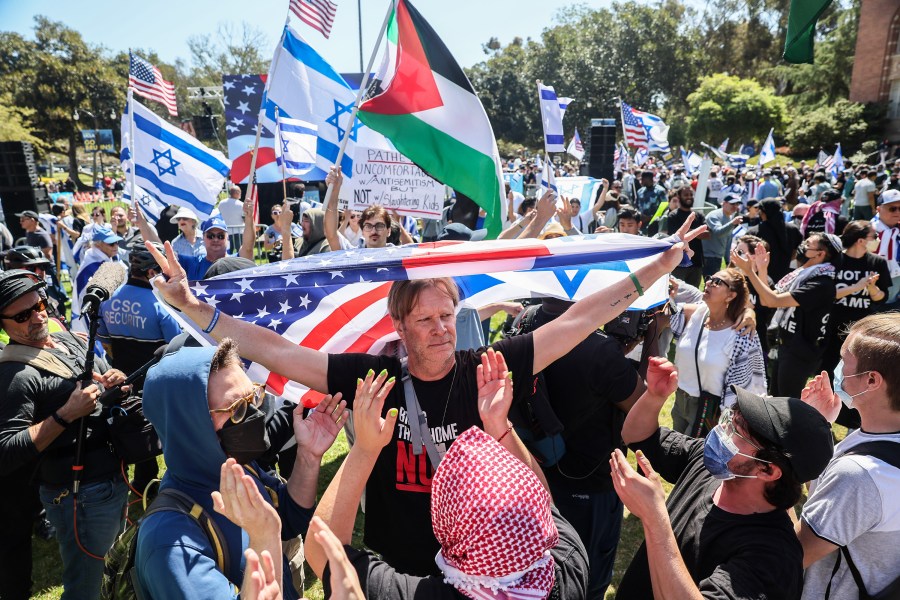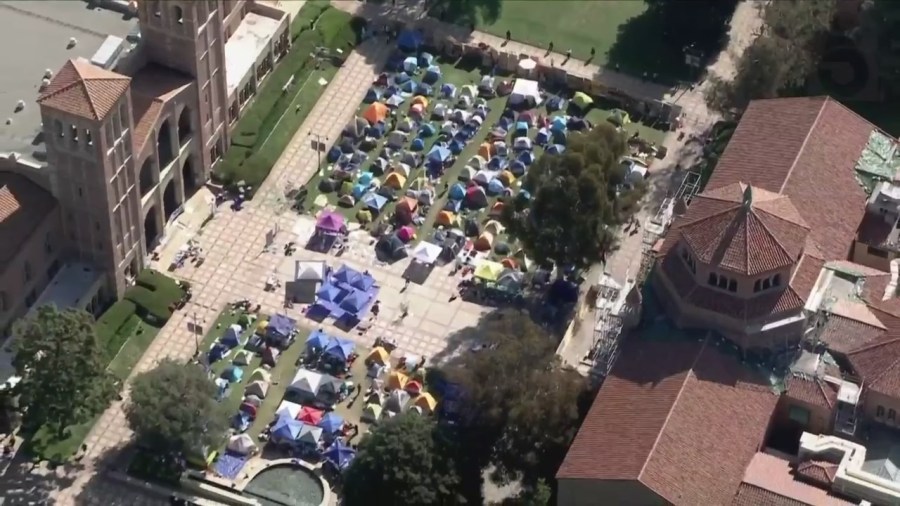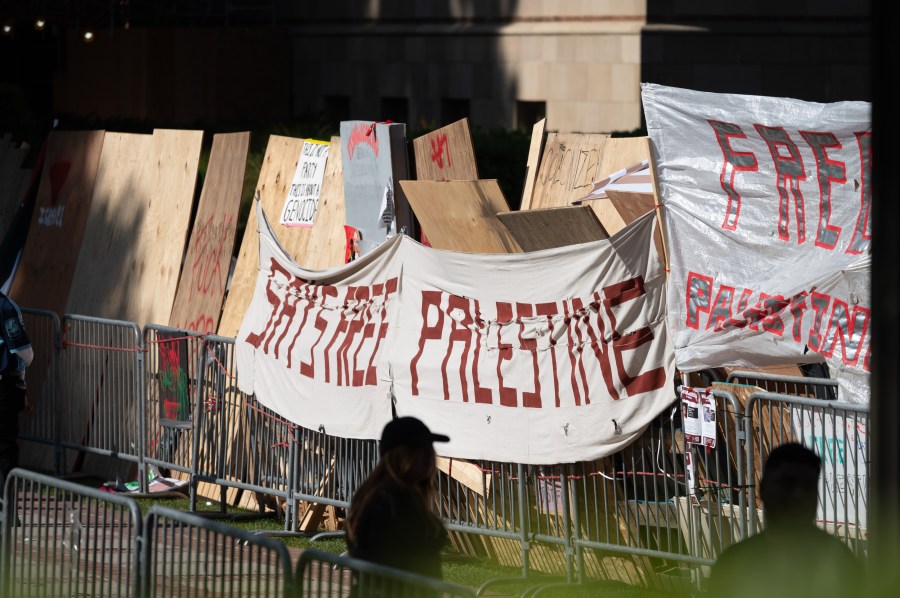UCLA is stepping up security around a pro-Palestinian protest encampment that has taken over a large campus plaza for four days, university officials announced after minor scuffles broke out involving demonstrators and pro-Israel demonstrators on Sunday.
By Monday morning, the encampment at Royce Quad had grown to approximately 50 tents surrounded by wood and metal fencing. Protesters have appointed guards to block access to the public, including members of the media.
KTLA 5 News witnessed those guards attempting to deny entry to UCLA firefighters who wanted to inspect the encampment Monday morning, although they were eventually allowed inside.
Protesters are calling for a halt to the 200-day conflict between Israel and Hamas, along with demanding UCLA divest all interests in Israel, a move the university has consistently opposed.
On Sunday, isolated skirmishes broke out when pro-Israel demonstrators held a large rally adjacent to the encampment that involved hundreds, if not thousands, of Israeli and U.S. flag-waving participants, speakers and videos projected on a large screen.
No significant injuries or arrests were reported, and a security buffer between the two sides largely held.
In a statement, university officials said they were “heartbroken” by the violence.
“As an institution of higher education, we stand firmly for the idea that even when we disagree, we must still engage respectfully and recognize one another’s humanity,” said UCLA spokesperson Mary Osako. “We are dismayed that certain individuals instead chose to jeopardize the physical safety of the community.”
It remains to be seen how long the university will allow the encampment, which first emerged on Thursday after pro-Palestinian protesters were physically removed from the campus of the University of Southern California near downtown Los Angeles.
There, demonstrators were protesting the war and USC’s decision to cancel the commencement speech by valedictorian Asna Tabassum, a Muslim student who supported anti-Israel views on social media, over unspecified security concerns.

























